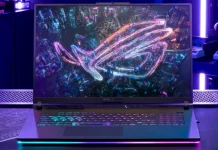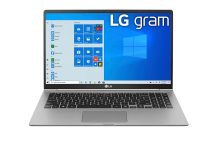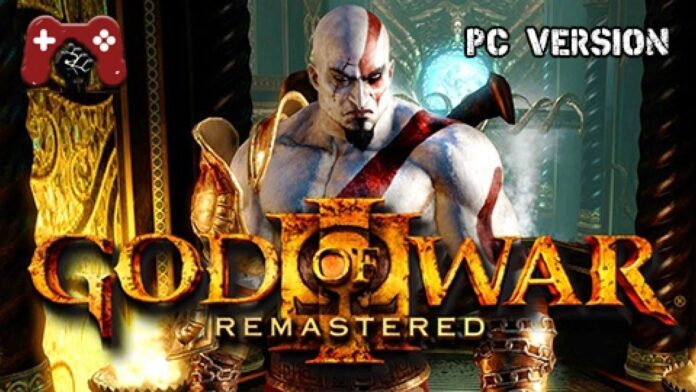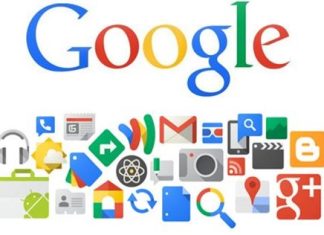God of War is coming to PC next year, Uncharted is coming to PC next year, and Sackboy: A Big Adventure used to be leaked in the SteamDB database as well, indicating that it, too, is making the leap to PC soon. Additionally, an Nvidia GeForce Now database leak appeared to point out that there would be several more games coming from Sony to PC in the future
– including PS5 games such as Demon’s Souls. All of this is on top of a surprisingly voluminous flow of Sony first-party games on PC in the last few years – Detroit: Become Human, Horizon: Zero Dawn, Death Stranding, Days Gone, all came to PC in this period. Sony bought Nixxes, a development studio notable for porting console games to PC, earlier this year. And just recently, Sony officially introduced the PlayStation PC label to the world, conclusively making it clear that they plan on continuing to bring their games to the platform going forward.
It’s been charming to see how observers, many of whom had been satisfied something like this would in no way happen, have step by step adjusted their expectations and stances to permit for these developments. Originally, as mentioned, it was once believed something like this would by no means happen; Detroit coming to PC used to be more because Sony had terminated its relationship with Quantic Dream, surely, and the IP no longer held any value to them. Death Stranding coming to PC was sure because Sony and Kojima enjoyed a special relationship.
Horizon Zero Dawn coming to PC was sure because the Decimal Engine had already been ported to PC for Death Stranding, so why not? Days Gone coming to PC was probably because it had flopped, so why not make money out of it? Just a few months ago, a lot of PlayStation fans had formally adjusted these expectations to, well, Sony will probably port smaller to mid-tier IP to PC, but flagship stuff, such as God of War, will never come to PC. As of right now, they are at the point where they think PS4 games may get ported to PC, but PS5 ones won’t; which, going by the aforementioned SteamDB and Nvidia leaks, means they are in for another round of expectations adjustment in the relatively short term future.
The point of this isn’t exactly to gloat but to thoroughly establish that Sony games are coming to PC. That is a fact, a reality. Sony has slowly been working up to this – more and more major first-party titles are coming to the platform, it has acquired a whole developer to help with the process, it has created a whole publishing label to help with the process, and yes, based on leaks, there’s a lot more coming in the near future. The question is no longer if a PlayStation first-party title will come to PC – the question is, when?
The “when” question is significant, because of the counterpoint posed by PlayStation’s biggest competition in the console market, Xbox. You see, a few years ago, Xbox made a really bold commitment – every single Xbox Game Studios game would come to PC going forward. Day and date. At launch.
Effectively, this would mean that Xbox would have no true exclusives, all its games would be shared at the very least with PC. It flew in the face of 30 years of understanding and history of the workings of the console market. It was believed that consoles sold primarily on the back of their software – and if there was no appealing software to buy them for because you could get that appealing software elsewhere, then why bother spending money on a proprietary, bespoke closed system?
But Xbox head Phil Spencer had a different understanding of things. What he felt used to be that consoles and PCs had been differentiated enough, and every provided sufficient wonderful advantages, that everyone would have its personal market enchantment inherently. Meaning that by way of presenting games throughout two special types of platforms, Spencer felt he wasn’t cutting his products’ market enchantment – he was once increasing it. The Xbox used to be no longer the product, it was once one of the delivery methods for the product, which had been the games themselves.
His gambit has paid off – Xbox Game Studios games are more successful now than ever (Sea of Thieves in particular is frequently setting records on Steam); meanwhile, Xbox hardware sales have not suffered. Yes, they aren’t matching PlayStation sales, but they weren’t matching PlayStation sales even prior to the PC day and date releases announcement.
Xbox One was always trailing behind PS4 – Xbox games coming to PC didn’t change that pace, and Xbox One continued selling at more or less the same rate as before. Xbox Series X is being outsold by the PS5 – but, again, there seems to be no active impact to its sales pace caused by the fact that those games, that would otherwise be exclusive to Xbox, are available on PC as well. It’s still selling roughly at the same pace as Xbox Series X (and, judging by the fact that it routinely sells out, it is selling more than Microsoft is able to produce).
Would this apply to Sony too? Could they too get away with having their games release on PC day and date? Largely, I think the answer is yes. I think that, obviously, there will be some who would rather just play on PC – particularly since PC offers the best version of any game by definition, and because PC is now a one stop to play pretty much every game ever made in the industry (Nintendo being the singular holdout as of this point), so why not just consolidate your entire game playing to that one platform? But here’s the thing, Spencer was right too. Ultimately, PC and consoles are fundamentally different propositions, and for most people, the perceived and psychological convenience of consoles creates an inherent appeal that PCs do not match.
Just as PC gamers love the flexibility and control that the platform offers them over their game playing experience, console players categorically love the convenience of having a platform where things just work with minimal friction. And of course, while PC has gotten far more convenient in the last decade, and consoles have added a lot more friction, in the end, they are still fundamentally different. Playing a game on consoles involves far fewer things to keep track of than playing a game on PC – this isn’t meant as a criticism, it’s meant as a recognition of the objective difference between the two platforms.
Means that for many, for most, in fact, console players? PC is a non-factor (just as for most PC players, consoles are a non-factor). The existence of Forza Horizon 5 on PC doesn’t mean something to someone finding out to purchase a console – for them, the options are Xbox, PlayStation, and Switch, which capacity if they want Forza, Xbox is their solely choice. It remains a de facto exclusive, for all purposes.
Meaning that the bulk of the console buying market – the people who buy FIFA and Assassin’s Creed and GTA and Mario Kart, those people, they aren’t going to be swayed by the PC. The existence of a PC version of a game is meaningless to them. Meaning effectively, having a PC version of your game loses you no exclusivity for the broader market (such as the broader market is concerned), and you expand your own addressable market by similarly offering your games to a new audience that, just like console players won’t ever be swayed by PC, will never be swayed by consoles. Your games end up selling a lot more, and your hardware sales remain largely unaffected.
And those increased software sales are essential – games cost a lot to make now, and those costs go up every time a new generation starts. They cost so much to make that it is simply not viable for most games to be profitable enough by selling purely to one audience. This is why every third-party publisher eventually went multiplatform – because the profits gained by selling to every audience were the only way to keep up with scaling costs, they didn’t decide to double, triple, or quadruple the hardware they would have to build their games for fun.
Games are simply so expensive that even if they sell a lot on one system, they are limited by only being on that one system – they need a larger addressable audience. This isn’t just something I’m pulling out of thin air, by the way, former PlayStation boss Shawn Layden explicitly outlined rising development costs as a reason for concern as far as game development goes.
Those development costs rising are presumably also the reason that Sony’s biggest games have all committed to cross-gen releases at this point; a game like God of War Ragnarok or Horizon: Forbidden West simply costs too much to limit to just the audience of the presumably 12-20 million PS5 owners who exist in the market when those games come out. Even if every single one of those buys God of War or Horizon, they would only match sales for the PS4 games – PS4 games that, as a reminder, were cheaper to produce. And every single PS5 owner won’t buy God of War or Horizon, no matter how good they are. Sony’s games don’t have that kind of attach rate, and they won’t, because the bulk of people who buy a PlayStation buy it to play FIFA with friends. The easiest way to ensure that these upcoming, more expensive games end up actually standing a chance to be financially viable ventures, is to expose them to a broader audience – in this case, a broader audience within the PlayStation universe itself.
Now, in the interest of fairness, it is also important to note that Shawn Layden said he couldn’t see Sony ever doing day and date releases of its games on PC (though he qualified it with “never say never”). But the question I am answering here isn’t if Sony will do them, it’s should they. And the answer is, yes they should. The benefits are too great, particularly as they continue to push game development costs higher with needless generational bumps every few years; the losses? Minimal. Yes, some people will decide to simply buy their games on PC going forward, but a) those people are still buying their games, and b) the people who were only purchasing a PlayStation for exclusives were likely never too invested in the ecosystem in the first place. Sony makes most of its money from PlayStation via third-party sales and sales from microtransactions, DLC, and subscriptions such as PS Plus. If you just own a PS4 to play God of War and The Last of Us and use your PC for everything else, Sony isn’t making much money off of you, to begin with – since you’re not spending money on microtransactions, DLC, third party games, and probably you are not spending money on PS Plus when you’re using your PC for multiplatform multiplayer games to begin with. So Sony doesn’t lose anything by you deciding not to buy their hardware (which is often sold at a loss to begin with, don’t forget) – particularly if you continue to buy their games on PC anyway.
So I think it would be beneficial for Sony to do this in the long run. I actually think they will eventually. Not right away, it will take some time – but PS5 development costs will continue to go up, and Sony’s games on PC have all been huge successes, and will presumably continue to be even more so as more and more high profile releases make the jump to the platform. And at some point, Sony will presumably come to the same conclusion Xbox did – that PC and console are differentiated audiences. There’s not as much overlap or potential for cross-pollination there. The best thing to do is to serve both simultaneously – and rake in the money.



























